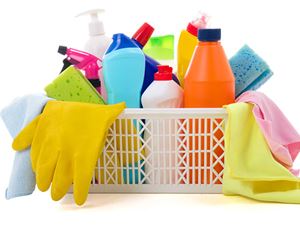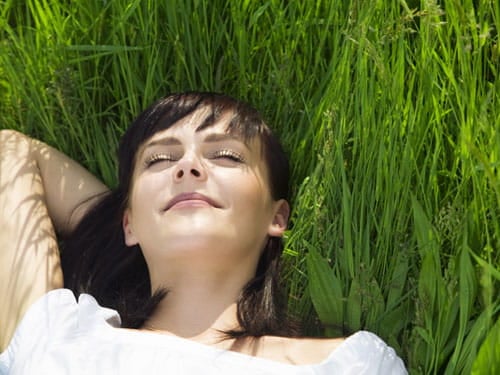
It’s illegal to dump toxins and hazardous materials into our water. While the laws do a pretty good (though certainly not perfect) job of protecting our waterways from large-scale polluters like factories and farms, a lot of pollution is generated by people going about their everyday lives and making change will require changing habits.
The choices we make every day can have a profound effect on the environment and our health. The things we use, wash and throw away all find their way into waterways, aquifers and back into our kitchen sinks. Along their journey they can poison wildlife, contaminate habitat and disrupt natural systems, all while putting your own health at risk.
Wastewater treatment facilities do their best to remove toxins, but the processes aren’t perfect. Rather than trying to take out contaminants, it’s a lot easier to prevent them from polluting water in the first place, and there’s a lot you can do to help. Here are a few common products you should avoid and alternatives that will lower your environmental impact and help keep your water clean and safe.
Beauty products with microbeads
Coping with plastic is among the biggest waste challenge we face. While many types of plastic can be recycled, the ubiquity of the substance means much of it becomes pollution, like the Texas-sized Pacific Garbage Patch, where it can wreak havoc on the environment.
Microbeads are perhaps the most insidious form of plastic pollution. Touted as exfoliants in body washes and face creams, the tiny particles are so small they often escape the methods we have to collect plastic trash before it becomes pollution and washes down the drain. Fish and other marine wildlife can choke on and be poisoned by these microbeads, a problem considered so serious, seven states have banned them.
Instead...
The good thing is you don’t need microbeads to feel clean. In response to consumer pressure, many companies have already begun phasing plastic out of their products, either by replacing microbeads with a more sustainable product or redesigning their formulas so microbeads aren’t necessary. Everyone from PopSugar and Bustle to Cosmopolitan have come out with a list of great microbead-free products. And if all else fails, good old baking soda makes a great exfoliant.
Antibacterial soap
Soap is for getting things germ-free, so it seems counterintuitive to warn folks off of antibacterial varieties. But in fact, antibacterial soaps and cleaning products do a lot more harm than good. One of the biggest and scariest problems is that, over time, they can make bacteria resistant to triclosan, the antibiotic used in soaps. Resistance turns completely treatable diseases into killers, something that’s already happened with MRSA and is currently happening with gonorrhea. It’s also bad for the environment. Lots of triclosan is washed down the drain and contaminates water where it’s been found to harm photosynthesis in algae and build up in wildlife.
And here’s the kicker—research has shown antibacterial products are no more effective than conventional soap and water at preventing disease.
Instead…
Just use regular soap. You’ll be getting functionally the same benefit as if you used antibacterial varieties. If you don’t have water and soap on hand, the CDC recommends using alcohol-based hand sanitizers in a pinch.
Synthetic fertilizers
Much of the Chesapeake Bay is a "dead zone" —areas where no marine life exists. One of the biggest culprits is runoff that carries with it fertilizers not just from farms, but also from urban and suburban lawns and gardens. These excess nutrients initially feed massive algae blooms, but when the algae dies, their decomposition sucks up all the oxygen in the water, choking other plant and animal life. What’s left is an oxygen-free zone that can’t sustain life. Beyond nutrient pollution, synthetic fertilizers, made chemically in a lab, can contaminate groundwater when toxins like nitrate leach through the soil into underground aquifers.
Instead…
Go organic and, when you can, make use of the waste you’re already generating to help your yard thrive. Common food waste like coffee grounds and egg shells make excellent fertilizers. Even better, you can make your own compost pile to make use of all your yard and kitchen waste. You can also purchase organic fertilizers that use things like fish emulsion, bonemeal and liquid seaweed to feed your garden.
Household cleaning products
The smell alone is enough to let you know most household cleaners are a cesspool of chemicals. While they may kill bacteria and make surfaces shine, they use some seriously toxic ingredients, many of which are appropriately labeled with a poison symbol. But other are more insidious. Phosphates are still a common component in dish and laundry detergents and, like fertilizer, lead to nutrient pollution and “dead zones.” Fabric softeners can contain chemicals that are linked to cancer and reproductive problems. This is just scratching the surface.
Instead…
The Environmental Working Group has prepared an exhaustive guide evaluating and scoring common cleaning products that recommends both ingredients to avoid and brands to trust. If you’re feeling adventurous, you can always try to make your own cleaning products using common, less-toxic substances like baking soda and vinegar.
Pesticides
Pesticides are designed to kill, so it’s no surprise that they can have seriously harmful effects on the environment and human health. The Environmental Protection Agency estimates Americans dump a staggering 90 million pounds of herbicides and pesticides on their lawns every year. These products not only seep into soil and groundwater below, but are also washed away into stream and water systems, poisoning plants and animals who live in and/or consume the water.
Despite the fact that Rachel Carson outlined many of pesticides’ scary impacts back in the 1960s in Silent Spring, decades later we’re still using many dangerous chemicals that can kill more things than intended.
Instead…
Humans have been coping with pests and weeds for time immemorial, so we know a lot of ways to protect our plants and homes that don’t involve synthetic toxins. The Northwest Center for Alternatives to Pesticides offers species-specific tips to rid yourself of everything from fleas and slugs to moles. You can also create a garden that will police itself from pesticides. Mint can keep aphids, slugs, ticks and even mice at bay, while chives discourage Japanese beetles, aphids and codling moths. Cilantro, calendula and horehound can keep your garden grasshopper-free. Nature has developed a lot of ways to take care of itself. Rather than running to a toxic or synthetic solution—sometimes you just have to harness the natural tools already in play.
Awareness of the common products we use that negatively impact our water supply is the first step toward protecting it for us and future generations. By keeping these alternatives in mind, you’ll be well on your way to helping conserve this precious resource, the environment and your health.

